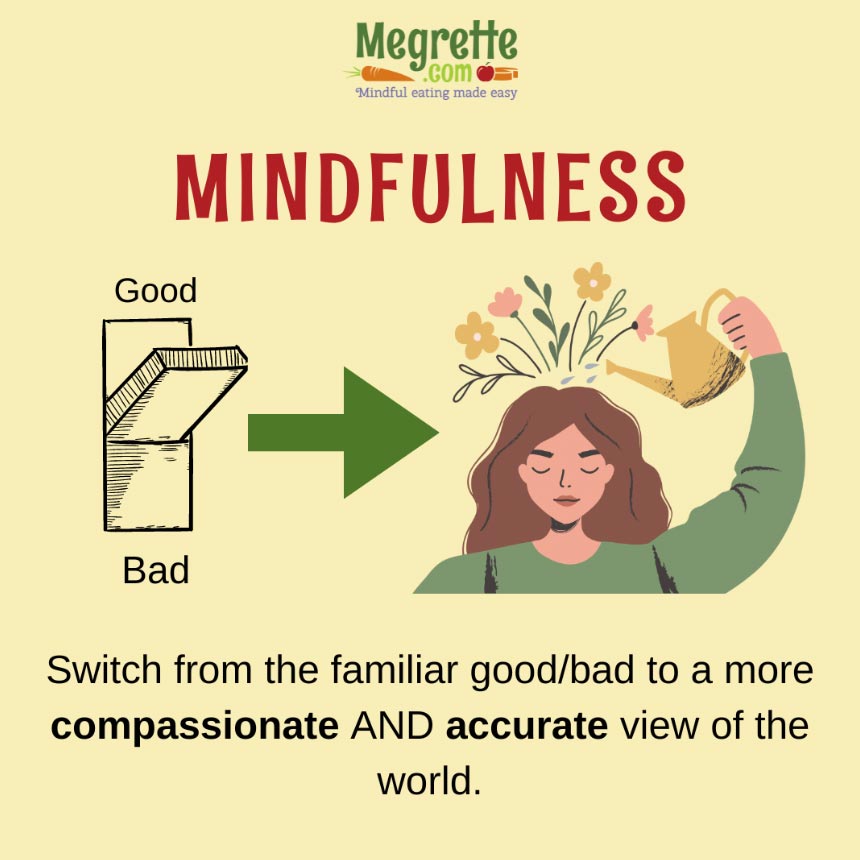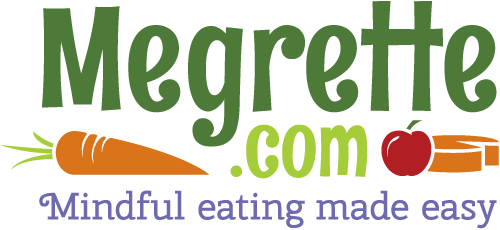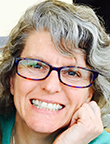The value of sorting is the theme I want to explore this month. For those of you who have been following me, you will remember that sorting has a secret. For many of us, it is an undervalued superpower. If you are new to my newsletter, let me introduce myself. My name is Megrette Fletcher, M.Ed., RDN, CDCES. I am a registered dietitian and diabetes care and education specialist. I also co-founded The Center for Mindful Eating and authored five books on mindfulness and/or diabetes care. I am the owner of Inclusive Diabetes Care. Thank you for reading my thoughts about mindfulness, mindful eating, and health.
I have watched enough nature shows to know that “Play is nature’s training for the hunt.” While most don’t think of sorting objects as play, they are the point of many children’s games. Do you remember those balls with shapes on the outside? The goal was to find the shape and put the matching yellow plastic figure inside. How about popular phone apps, like Candy Crush, which has you spot patterns and colors? These ‘games’ center on the skill of sorting. Fast forward to high school, where you learned the silly mnemonic King Phillip Calls Out For Good Soup to remember the scientific classification system. Now, sorting has entered the big leagues.
Kingdom >Phylum > Class>Order>Family>Genus>Species [Subspecies (if present)]

Sorting helps you know where things go.
This brings me to my confession – I am [delete expletive] annoyed when I can’t find a needed document or photo on my devices. My deep wish to be better organized has prompted me to watch TV shows and Netflix documentaries about being organized. I keep craving the mystical skill of knowing where things are. I imagine there is someone, somewhere, who can do this – and still work 40 hours a day, raise a family, and have a rich and meaningful life.
Because this isn’t my reality, I assume the problem lies with me, that I am somehow defective and everyone else is organized, able to sort and manage the texts, IM, messages, emails, and calls so they can find things. This wish to be organized and the belief that I was the ONLY ONE who wasn’t organized is what likely drove me toward mindfulness.
It might have been a lucky twist of fate that I decided to try pausing. I can’t remember where the thought came from, but I am imagining it went something like, “Maybe this tightness in my chest and difficulty breathing might improve if I stop what I am doing and pause.” The more I paused, the less overwhelmed I felt. The more I paused, the more I was able to sort out my experiences. The more I paused and checked in, the more I could sort my experience into three groups: pleasant, neutral, or unpleasant. The more I paused, the more I was able to see the world wasn’t black or white AND the problem wasn’t me. The problem was just that, a problem – a common, everyday problem. There was no need to over identify, self-blame, or project. Seeing a larger view of the world changed me.
Mindfulness and mindful eating can help you sort.
The key, I learned, to effective sorting is to have more than two options. Life isn’t black or white, but a rainbow of colors with many shades in between. Mindfulness encourages us to let go of the black and white thinking. Practicing mindfulness helps us uproot the familiar binary view that there is only right or wrong. Mindfulness helps us see this view is fundamentally flawed.
Here is what helps me.
The image of a switch, that things are ‘good’ or ‘bad’ is what I am challenging. This helps open me up to ask open-ended questions, such as, what percentage of the time is this helping? What percentage of the time is this a problem? Am I simply reverting to the binary view of ‘good’ and ‘bad’? If you are curious about my take on mindfulness and mindful eating please check out my two books on Mindful Eating. Both have CPE available via Skelly Skills.
If you want to bring mindful eating to your clients, Eat What You Love, Love What You Eat with Diabetes is a consumer facing book that uses the Am I Hungry, Mindful Eating Cycle to understand diabetes.
If you would like a weight inclusive approach to diabetes care check out Diabetes Counseling and Educational Activities: Helping clients without harping on weight.
Here’s what is happening in September
- Inclusive Diabetes Care Newsletter – Explore how we can bring ease while cultivating a sense of belonging to our clients with type 2 diabetes. Free and paid subscriptions are available.
- No Weight Loss Required Program is a weight – inclusive newsletter for people with type 2 diabetes. Free and paid subscriptions are available.

